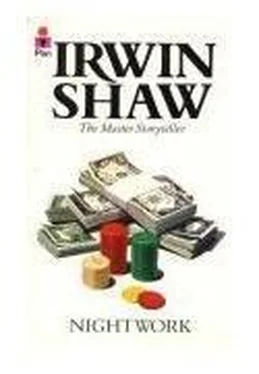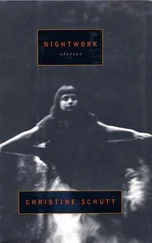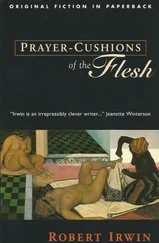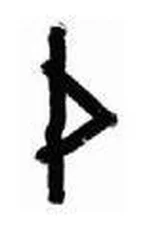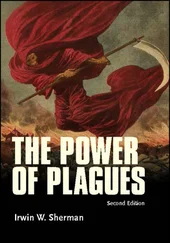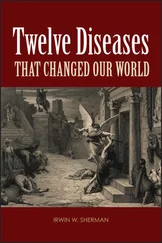Irwin Shaw - Nightwork
Здесь есть возможность читать онлайн «Irwin Shaw - Nightwork» весь текст электронной книги совершенно бесплатно (целиком полную версию без сокращений). В некоторых случаях можно слушать аудио, скачать через торрент в формате fb2 и присутствует краткое содержание. Жанр: Детектив, на английском языке. Описание произведения, (предисловие) а так же отзывы посетителей доступны на портале библиотеки ЛибКат.
- Название:Nightwork
- Автор:
- Жанр:
- Год:неизвестен
- ISBN:нет данных
- Рейтинг книги:3 / 5. Голосов: 1
-
Избранное:Добавить в избранное
- Отзывы:
-
Ваша оценка:
- 60
- 1
- 2
- 3
- 4
- 5
Nightwork: краткое содержание, описание и аннотация
Предлагаем к чтению аннотацию, описание, краткое содержание или предисловие (зависит от того, что написал сам автор книги «Nightwork»). Если вы не нашли необходимую информацию о книге — напишите в комментариях, мы постараемся отыскать её.
Nightwork — читать онлайн бесплатно полную книгу (весь текст) целиком
Ниже представлен текст книги, разбитый по страницам. Система сохранения места последней прочитанной страницы, позволяет с удобством читать онлайн бесплатно книгу «Nightwork», без необходимости каждый раз заново искать на чём Вы остановились. Поставьте закладку, и сможете в любой момент перейти на страницу, на которой закончили чтение.
Интервал:
Закладка:
He sighed, and I left him rewrapping the chain and putting it back in his pocket.
As I walked away, I realized that any hope I might have had of fading unnoticed into the populations of Europe was derisive. Wherever I went I would be picked out, by anyone who had the slightest interest in me, as an American. I considered growing a beard.
The next day, feeling that perhaps I would never pass this way again, I took the rapido to Venice, a city that I believed, rightly as it turned out, would be even sadder at that season than Milan. The misty canals, the sad hooting of boat-homs, the black water and mossy pilings in the gray Adriatic winter light did much to restore the sense of my own dignity and erase the memory of the athletic frivolity of St Moritz. I read, with satisfaction, that Venice was sinking into the sea. I lingered on, in a cheap pensione, visiting churches, drinking a light white wine called Soave in bare cafés along the sides of the Piazza San Marco and watching Italians, an occupation that I found I enjoyed. I avoided Harry’s Bar, which I feared would contain a hard core of Americans, even at that season. There was only one American I wanted to see and I had no reason to believe he would be found in Venice that week.
The little excursion had done me a great deal of good. My nerves, which had been shattered in Switzerland, now seemed dependable. I arrived at the Hotel Excelsior in Florence on the evening of the thirteenth of February confident that I would handle myself capably when the moment of confrontation arrived.
After an excellent dinner I wandered through the streets of Florence, stood awhile before the monumental copy of Michelangelo’s statue of David in the Piazza della Signoria, musing on the nature of heroism and the defeat of villainy. Florence, with its history of plots and vendettas, its Guelphs and Ghibellines, was a fitting city in which to meet my enemy.
Not unnaturally, I slept badly and was up before the light of dawn broke over the swollen Arno beneath my window.
Even before I had my breakfast I questioned the concierge about the schedules of flights from London to Milan and the most convenient rail connection from Milan to Florence. By my calculation the lady would arrive at five-thirty-five.
I would be in the lobby of the hotel at that hour, strategically placed so as to be able to observe any female who signed in at the reception desk. And any man, slightly shorter than myself, who might accompany her or move to greet her.
I drank a great deal of black coffee all that day, but no alcohol, not even a beer. Out of a sense of duty to my role as a tourist, I wandered through the Uffizi Gallery, but the glorious display of Florentine art spread through the great halls made no impression on me. I would come back at another time.
I made one purchase, at a little souvenir shop, a letter opener, shaped like a stiletto, with a chased silver hilt. I refused to think of the exact reasons for the purchase, and pretended to myself that I had merely taken an idle and innocent fancy to it when I had happened to see it lying in the display window.
Late in the afternoon I bought the Rome Daily American and installed myself in one of the ornate chairs in the hotel lobby, not too ostentatiously close to the entrance and the reception desk, but with a clear view of the critical area. I was wearing my own clothes. I didn’t want to warn anyone off with the houndstooth jacket or any of the brightly striped shirts that had come along with it.
By six o’clock, I had read the newspaper over twice. The only arrivals at the hotel had been an American family, stout, loud father, weary mother in sensible shoes, three lanky, pale children in identical red, white, and blue anoraks. They had driven up from Rome, I overheard; the roads were icy. By an act of will, I restrained myself from going over to the concierge to ask him to find out if the train from Milan was running late.
I was reading the column of social notes, which I had skipped before, and learned that in Parroli someone I had never heard of had given a party for someone else I never had heard of, when a hatless blonde woman of about thirty came through the door, followed by a quantity of expensive-looking luggage. I made a conscious effort to control my breathing. The woman, I noted automatically, was pretty, with a long, aristocratic nose and a bright slash of a mouth and was wearing a heavy, wrap-around, brown cloth coat that was, even to my inexperienced eye, beautifully tailored.
She strode over to the reception desk with the air of a woman who had been used to five-star hotels all her life, but just as she was about to give her name to the clerk behind the desk, two of the three American children, who had remained in the hall, broke into a loud argument about whose turn it was to go up to their room and take the first bath. So I couldn’t hear the name that the lady gave the clerk. If I ever had children, I thought grimly, I would never travel with them.
I sat glued to my chair while the lady signed the hotel registration card and threw down her passport. I could not see its color. Finished at the desk, the lady didn’t go towards the elevators, but strode directly into the bar. I touched the silver coin in my pocket and stood up and started toward the bar. But just as I reached it, she came out. I stepped back to let her pass me, and made a little hint of a polite bow, but she paid no attention to me. I could not tell what the expression on her face meant.
I sat in a corner of the bar and ordered a Scotch and soda. The bar was empty and dark. There was nothing I could do for the moment but wait.
I was still there at seven o’clock, when she came back. She was wearing a severe black dress with two strands of pearls looped around her throat and was carrying her brown coat. Obviously she intended to go out. She stopped at the door and scanned the room. The American family was seated around a table, the mother and father drinking martinis, the children Coca-Colas, the father from time to time saying, “For God’s sake, will you kids stop yelling?” An elderly English couple was seated across the room from me, the gentleman reading a three-day-old copy of the London Times, the woman, in a billowing flowered print, staring vacantly into space.
An Italian group near the bar itself chattered continuously, and I could make out the word disgracia which they had been using over and over again, with great intensity, ever since they had sat down fifteen minutes before. There was no way of my telling who or what was disgraceful.
No one but myself was sitting alone.
A little grimace twisted the generous red mouth of the woman at the door. Her skin was pale, with a delicate pink flush over the prominent cheekbones. The eyes were dark blue, almost violet, the figure, frankly revealed by the sober dress, willowy, the legs slender and finely shaped. I decided she was not pretty, but beautiful. Just the sort of woman a man who was bold and shameless enough to steal seventy thousand dollars at the Zurich airport would be likely to take away on an illicit holiday from an adoring and crippled husband.
She noticed me looking at her and frowned slightly. Frowning became her. I lowered my eyes. Then she came across the room and sat down at the table next to mine, throwing her coat over the other chair at her table and dragging a pack of cigarettes and a heavy gold lighter out of her bag.
The waiter on duty hurried over to her and lit her cigarette. She was the sort of woman who is served immediately on all occasions. The waiter was a handsome, dark young man with the soft, watchful eyes of a fighting bull, and he showed splendid teeth in a wide smile as he bent gracefully over the lady’s table to take her order.
“A pink gin, per favore,” she said. “No ice.” British.
Читать дальшеИнтервал:
Закладка:
Похожие книги на «Nightwork»
Представляем Вашему вниманию похожие книги на «Nightwork» списком для выбора. Мы отобрали схожую по названию и смыслу литературу в надежде предоставить читателям больше вариантов отыскать новые, интересные, ещё непрочитанные произведения.
Обсуждение, отзывы о книге «Nightwork» и просто собственные мнения читателей. Оставьте ваши комментарии, напишите, что Вы думаете о произведении, его смысле или главных героях. Укажите что конкретно понравилось, а что нет, и почему Вы так считаете.
